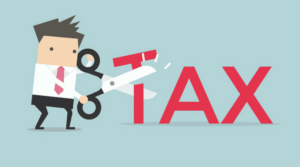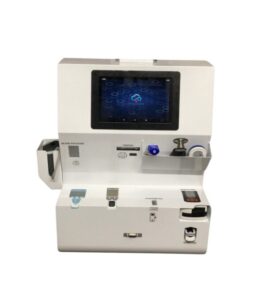The Importance of Specialized Restaurant Accounting
4 min readThe success of a restaurant isn’t just marked by its mouth-watering delicacies or outstanding hospitality. An efficient back-office also governs its performance. As a restaurant owner, understanding and keeping track of your business’s financial health is quite pivotal, which can be achieved by implementing the practice of restaurant accounting.
What is Restaurant Accounting?
Restaurant accounting refers to the accumulation, interpretation, and analysis of your restaurant’s financial information. It includes keeping track of the inventory, cash flow, and income statements. It helps you scale your profits, analyze, and deduce important learnings from your losses, and run your restaurant on a sustainable financial model. A restaurant accountant specialises in restaurant accounting.
Why is Restaurant Accounting so Important?
If you consider the pantry as the heart of your restaurant, then consider the back office as its nerve centre. How you manage your finances can largely determine the profitability of your restaurant. Not keeping a record of your restaurant’s financial information is like walking blindfolded.
Let’s look at some factors that make restaurant accounting necessary.
- Restaurant accounting aids in better financial management
It helps you keep track of your major expenses like:
- Cost of Goods Sold (COGS)
- Restaurant Labor Cost
- Maintenance Cost
- Operational Expenses
- Your Assets and Liabilities etc.
Documenting your financial activities gives a deeper insight into the prime costs and can help you make proactive decisions regarding realistic financial strategies.
- It helps you strategize a business model for your restaurant
Keeping a tab of the money flowing in and out of your restaurant will give you a precise picture of its financial performance and help create an efficient business model to meet your financial goals.
- Better evaluation at the end of each accounting period
Accounting helps restaurant owners have a clear understanding of their prime costs. It gives them a better idea of where most of their money goes, thus facilitating a complete evaluation of the restaurant’s overall performance. It gives them an insight into the areas where they can improve. It allows them to compare their financial performance with the previous accounting period to determine the overall growth trajectory.
- Keeps your restaurant afloat
All in all, accounting ensures your restaurant’s sustainability and makes room for profitability. Outsource2india knows how important your business is to you. Hence, we provide the best restaurant accounting services to help you succeed in your business.
Restaurant Accounting Methods
Restaurants usually generate most of their revenue from selling food and beverages. Since these items are perishable, restaurant accounting differs from other industries. Restaurants may change their inventory levels based on the demands of their customers. They also need to keep track of labour costs and COGS. Due to these differences, the accounting methods employed are also different.
- Cash Accounting Method
Ideal for small restaurants having fewer transactions, this method records all the activities and transactions. As customers usually pay for the food and services immediately, they do not owe the restaurant money later after the service (like they might in the case of a construction project). Hence, restaurants employing this method probably do not have an accounts receivable balance.
- Accrual Accounting Method
This method keeps track of the expenses and records at the time of the transaction, rather than worrying about when the cash is exchanged. It includes both the account receivables and the account payables. This method gives a better idea of your restaurant’s financial health.
Restaurants that generate less than 1 million in revenue can employ either of these methods, but those that create more than 1 million, must go for the accrual method only.
The Impact of Information Technology on Restaurant Accounting
Like there are different courses to a meal, there are various departments in finance as well. While we still rely on the chefs’ mastery to cook unique delicacies, thankfully, this isn’t the case for accounting. The advent of computers and the development of accounting software have transformed how businesses keep track of their financial data.
Today, everything is done on the system. Computerised accounting information systems monitor all your financial details. They automate traditional paper ledgers and financial books. They come with new features you can customise according to your restaurant’s needs. They automate the entire accounting process to a large extent, which otherwise would have required manual labour and time. Since the system does all the arithmetic, there is hardly any room for errors.
Even though this might look like a lot of work, Outsource2india has state-of-the-art outsourced accounting services which will seamlessly cater to all your financial needs.
You will need to hire an accountant proficient in using accounting software like QuickBooks and others. You must ensure that the accountant’s software integrates with your POS system. Your Front-Of-House employees will be using your POS system, and this integration will automate the reconciliation of your sales records and bank deposits.
Computerised accounting systems have shortened the time required by accountants to prepare financial reports. Graphics such as pie charts and bar graphs increase financial information’s readability. The shortened processing time facilitates better monitoring of cash flow and improves the overall efficiency of your restaurant.
Maintaining all financial history manually in the form of documents can be cumbersome. Electronically recording financial transactions increases the accuracy of the information and paves the way for a paperless office.
The Conclusion
Understanding your restaurant’s financial health can determine where your business is headed. Best restaurant accounting practices can help you chart out a business model that best suits your needs, thereby ensuring the scalability of your profits and the long-term sustainability of your restaurant.






